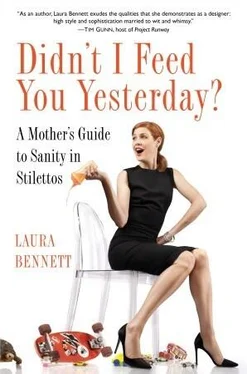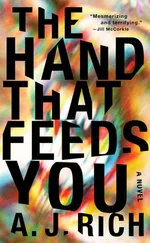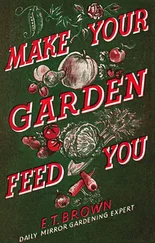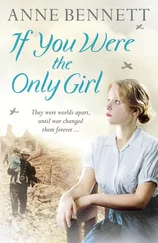To me, having six children is completely normal. I don’t really get couples who choose to stop at one or two. That’s like going to Vegas and only playing one hand of blackjack, or throwing the dice twice. My curiosity gets the best of me: I want to see what genetic cocktail Lady Luck has to offer.
As if I needed another reason, every package of eight-pound baby comes with a special toy surprise—a designer handbag, an art deco bracelet, or a pair of fabulous shoes. My husband’s gifts are incentive enough to endure nine months of pregnancy. And I look at each occasion as my last chance. Once we get a new baby home and are faced with the added expense, I figure there will be no more gifts.
Having so many children was hardly a conscious decision, not something I set out to accomplish, but it has taken the pressure off all of the concerned parties. I don’t have to be so meticulous about every little thing. If I lose one somewhere, there are extras. We have an heir, a spare, another spare, and three more spares. I’m not really sure how that happened. Of course I know, technically, how it happened, and I admit I didn’t do anything to stop it. Sometimes it was a matter of “Oh, look, honey, the baby is walking! He has grown so fast. Time to have another!” Those were the planned ones. Then there was the time my husband, Peter, came to me with a urine-laden plastic stick emblazoned with a magenta plus sign and asked, “Is this yours?” I replied, “I’m pretty sure it’s yours.” That was a surprise one.
Planned or not, however each one came about, on most days I am happy to have them. And so I find myself with six dependent souls and the responsibility of getting them safely from infancy to adulthood with minimal mental damage to them or me. Of course if one of them gets into drugs, or we run into the occasional disability, it’s no big deal. I don’t have all my eggs in one perfect little basket; I don’t need every child to be a straight-A, Ivy League–admitted music-and-sports prodigy. I have the luxury of accepting each of them as they are, quirks, disabilities, genetic mutations, and all.
“Where did you get that?” I asked, waking from a nap to a familiar smell.
“I called Domino’s,” my daughter answered with a shrug. “Where did you get the money?” I probed, groggy and bewildered.
“The bottom of your purse.”
“Did you tip?”
“Twenty percent.” She winked, radiant with pride. “I got your favorite.”
Cleo was five years old. We’d been watching something on the television and I had dozed off, overwhelmed with fatigue-induced narcolepsy. It was a common occurrence for me in those days. I had been living in Texas and I wanted out of my marriage, so I formulated an escape plan based on higher education. When I was accepted to the graduate program for architecture at Columbia University in New York City, I took my daughter, left my husband, and moved north and east, suddenly becoming a broke, single working mother and full-time student. Cleo had spent the first four years of her life in a booster seat under my drafting table at the University of Houston; she would spend the next few lean, exhausting years in the first character-building situation of her life. And build character she did. There were days when we had to walk to school across Central Park because we didn’t have $1.50 to take the bus, but being penniless and raising a kid by myself never felt like obstacles. I was living in Disneyland for grown-ups, swinging from chandeliers with Cleo right beside me, fixture for fixture. Of course there were times when she was the adult, a doppelgänger of Tatum O’Neal in Paper Moon right down to her little banged haircut.
“Get up, Mom, you’ll be late for work,” she would prod.
“You’re not going out with that loser again, are you?” she would accurately judge.
“You are not leaving the house in that dress,” she would scold. I barely had time to parent—much less overparent—but, thanks in good part to my abject neglect, Cleo has grown into an independent, self-sufficient, and fearless adult.
When Cleo was nine, she announced at Thanksgiving that she was a vegetarian and would no longer be eating anything with a face. This is not that unusual, particularly among girls who love animals as fiercely as Cleo does. The only thing I take issue with is her choice of terminology. If she wants to be accurate, she should call herself a “pastatarian” or a “Cheeriotarian,” as I cannot recall an actual vegetable ever clearing her front teeth. Corn on the cob and French fries don’t count, in my opinion; they are starches, devoid of nutrients other than the dirt or the occasional corn worm that evades detection. If you ask her brother Truman to describe his sister, he will say, “She has big boobs and only eats cereal.”
When I met Peter, he instantly understood that Cleo and I were a package deal. Things moved quickly; we married, and in three years we had two more children. With the body count steadily growing, Cleo decided it was time to strike out on her own—she wanted to go to boarding school. It’s possible that she was too embarrassed by the repetitive proof of her parents having sex, and needed to get out of town, but I think the reason was more likely her insane love of horses. What horses do for girls is buy time, giving them a few extra years before they must discover boys. I do mean the “buying time” part literally, because those years don’t come cheap. Ever industrious, Cleo helped by mucking out the neighbor’s barn upstate in exchange for riding lessons. I was not at all surprised when she started on her own to research boarding schools that offered riding as a centerpiece of the curriculum, and more than a little relieved that we wouldn’t have to go through the grueling school application process in Manhattan. Being her usual assertive self, she compiled a list of options and set up appointments for the three of us to visit. She also filled out all the applications and wrote the necessary essays completely on her own. Talk about low maintenance. In the end she chose Foxcroft, a beautiful all-girl high school in Virginia, and achieved her double goal of riding every day and wearing pajamas to class.
Many friends and family attended Cleo’s graduation, but I couldn’t be there, sequestered as I was for Project Runway . She wore a long white gown that I sewed for her. As I toiled in the workroom at Parsons, a captive of reality programming, I occasionally had enough mental acuity to think about Cleo. I realized that sending her off to boarding school was the greatest sacrifice I had ever made in my life. The moments I missed with her—watching her dress for a date or celebrate after a victory on the hockey field—are lost to me. She thrived, grew, cultivated friendships, and gained worldviews that have formed her life, and I was not a part of the process. It would have been selfish to keep her from leaving when she was clearly so ready, but it was nearly unbearable to let her go.
“You should get a job at Hooters,” Peik once told his big sister.
“You should get a job as Dad,” she shot back.
I hope I made the right choice to marry Peter and bear his spawn, because when I gave birth to Peik I suddenly had two of him. This would be the natural place to make a Pete and rePete joke, but I will spare you. Apart from his hair color, Peik is in every way—physical, emotional, habitual—a clone of his father. I know what you’re thinking: what kind of name is Peik? My husband once had a girlfriend whose brother was named Peik, and Peter loved the name more than the girlfriend, apparently. Some women would be offended by this connection to a husband’s past love life, but not me. I have no problem with the source of the name; what I do have a problem with is the name itself. Is it for a boy or a girl? How do I pronounce it? Does it involve that obnoxious “i before e” rule? I fear I have given my son a long and frustrating way of introducing himself to strangers.
Читать дальше












